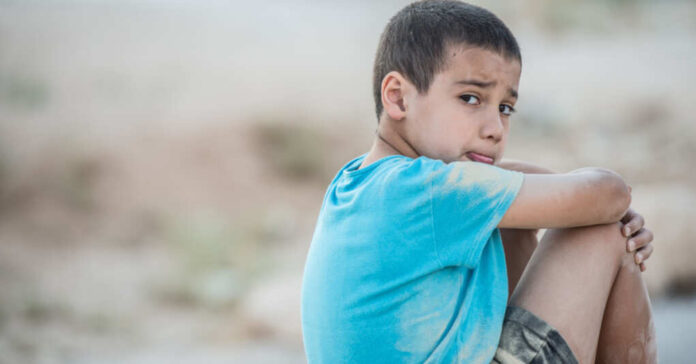
For tens of thousands of unaccompanied illegal immigrant children, surviving the trip across the border is just the first step. The kids are frequently at the mercy of drug cartels, sexual abuse, and human traffickers. Once they cross the border, it should, in theory, be safer for them than during the journey. But in reality, the Department of Health and Human Services (HHS) passed a rule that would ensure that, for many kids, the nightmare is just starting.
Unaccompanied Alien Children (UACs) are transitioned from Border Patrol custody to the supervision of the Department of Health and Human Services (HHS) to place them with an adult sponsor, typically a relative.
But amid the unprecedented surge of UACs this year, reports emerged of children being forced into the labor force, raising concerns about the agency’s ability to safeguard minors. Additionally, there were instances where the agency encountered challenges in maintaining contact with sponsors once they assumed responsibility for the well-being of the minors.
In September, the HHS Office of Refugee Resettlement (ORR) introduced the Unaccompanied Children Program Foundational Rule to “create clear guidelines” for how the government takes care of children who arrive at the border without adult guardians. It covers areas like where the children are placed, how they are released, how operations are conducted, transportation protocols, and monitoring practices.
This rule also includes plans to provide more legal and support services to these children after they are released and protections for their rights. It establishes an office to handle concerns about the government’s actions regarding these children.
HHS Secretary Xavier Becerra stated that this rule is meant to ensure the safety and well-being of these children. He explains that the rule protects and supports them as they move into new communities. The goal is to ensure these vulnerable children are cared for properly and given help as they start a new chapter in their lives.
But a coalition of thirty-eight Senate Republicans, led by Senator Chuck Grassley, is calling on the HHS to revoke the rule, citing concerns that the rule incorporates provisions that are “alarming, dangerous, and potentially illegal.”
In a letter to HHS, the Republicans observed, “This Proposed Rule ignores nearly seven years of oversight conducted by Congress and the Office of Inspector General and reveals chronic foot-dragging — if not total reluctance — when protecting vulnerable children.”
Especially concerning to Republicans is the rule’s stipulation that whistleblowers reveal their identities before providing information about the well-being of children. Additionally, the rule fails to ensure that sponsors are legal citizens of the United States.
To make matters worse, the Unaccompanied Children Program Foundational Rule makes screening sponsors optional, relying only on the sponsor’s statements without properly vetting them. Basic screening procedures, such as background checks, home visits, and interviews, will no longer be required.
Consequently, critics argue, the child is handed over to an unvetted sponsor, potentially risking the child’s safety if placed with a sponsor who might have criminal or substance abuse issues or who intends to see the child trafficked or forced into labor.
An HHS audit revealed that hundreds of UACs were released to nonfamily sponsors hosting three or more unaccompanied kids. Concerns have been raised by advocates who fear that minors might be placed with strangers, posing a risk of exploitation for child labor. Wendy Young, president of Kids in Need of Defense, highlights concern about children being placed in settings where they may not know the person, potentially leading to exploitative situations.
Young explains, “Some kids are placed into settings where they may not know the person, and they are treated as a second-class citizen in the family and under pressure to work.”
These concerns follow reports of missing and exploited UACs throughout the country. After being placed into the care of a sponsor, HHS makes three attempts to follow up on the child. Once it’s been determined that no contact can be made, the child’s name is moved to a “failure to establish contact” list.
It’s estimated that HHS lost contact with more than 85,000 children. HHS seems unconcerned by this, with ORR director Robin Dunn Marcos testifying in April that “ORR’s custodial authority ends when they are discharged” to a sponsor. HHS attempts to differentiate between “failure to establish contact” and “losing a child,” but for the children “misplaced” by HHS, the difference in terminology doesn’t matter. In both cases, the child is “missing.”
The Unaccompanied Children Program Foundational Rule seems to be a way to relieve an overwhelmed HHS from doing anything more than a cursory check before turning the responsibility over to someone else. And if HHS can’t contact the child’s sponsor after three tries, too bad. You’re on your own, kid.
